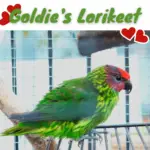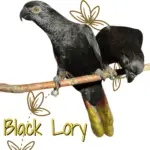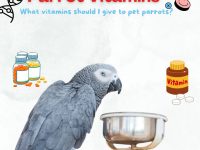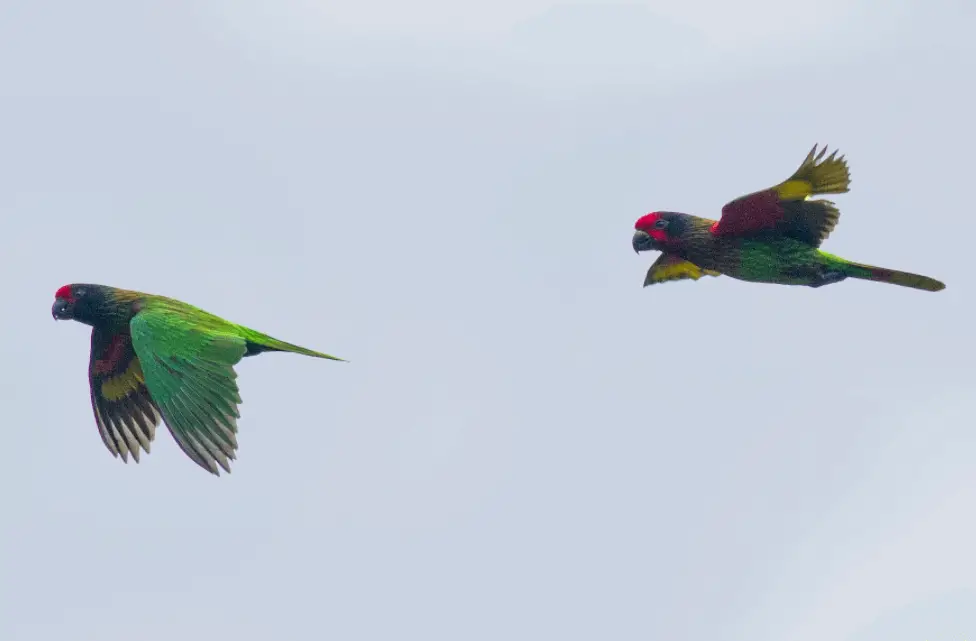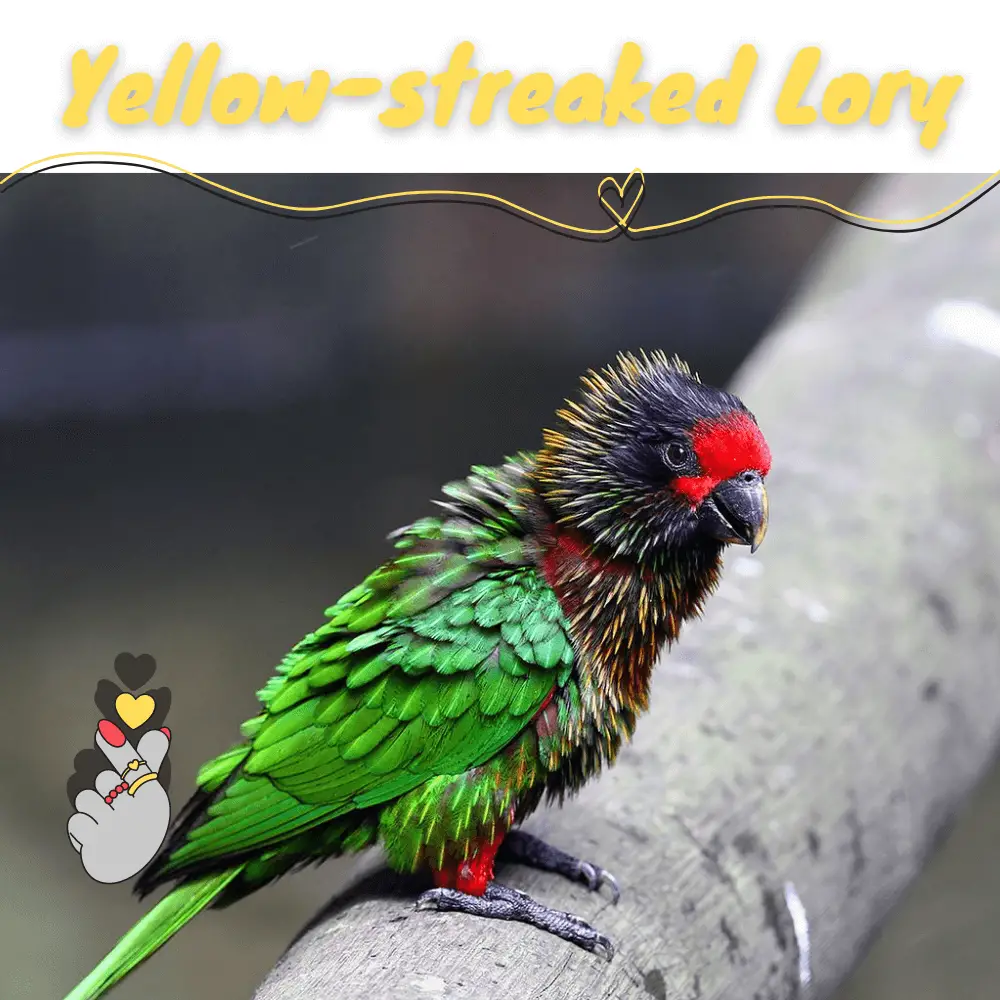
Yellow-streaked Lory 31 cm; 180–245 g. Generally green; bill, skin at the base of the bill and bare orbital skin black; lores, forehead to mid-crown red, bordered blackish in indistinct patch from base of the lower mandible through ear-coverts to hind crown, shading in turn to green streaking;
irregular red spots and patches on throat and breast; yellow or orange streaks on mantle, breast, and belly; thighs red; underwing-coverts red; yellow band across the underside of flight feathers; underside of tail light greenish-brown, basally red; legs dark grey.
Subspecies
Editor’s Note: This article requires further editing work to merge existing content into the appropriate Subspecies sections. Please bear with us while this update takes place.
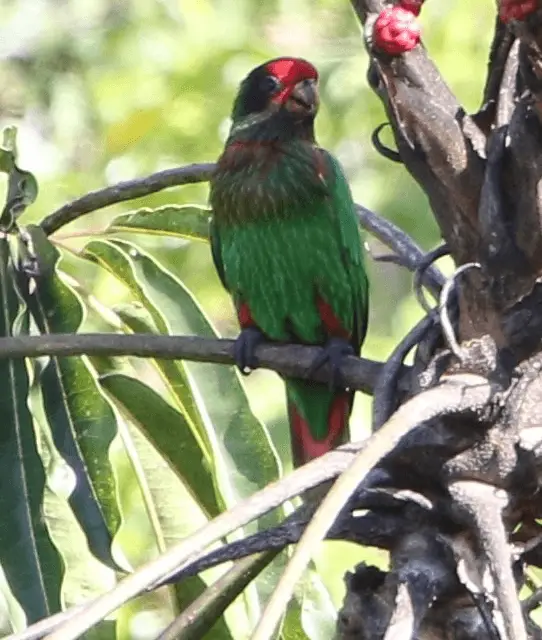
Specific name of Yellow-streaked Lory emended on basis of internal evidence (corrected Latin; ending modified for gender agreement). Three subspecies were recognized.
Chalcopsitta scintillata rubrifrons Scientific name definitions
Distribution
Chalcopsitta scintillata scintillata Scientific name definitions
Distribution
Chalcopsitta scintillata chloroptera Scientific name definitions
Distribution
Distribution
Editor’s Note: Additional distribution information for this taxon can be found in the ‘Subspecies’ article above. In the future, we will develop a range-wide distribution article.
Habitat
Lowland savanna and forest, disturbed lower montane forest, secondary growth, sago swamps and mangroves, and coconut plantations, up to 800 m.
Movement
No information, but given the occupation of savanna, and occurrence in flocks, there may be some seasonal movements; certainly, local abundance seems to be influenced by the periodic blooming of certain trees.
Diet and Foraging
Yellow-streaked Lory feeding Nectar or pollen of Syzygium (without damaging flowers), the nectar of Brassaia actinophylla, sago palms, and Schefflera.
Yellow Streaked Lory | Salman’s Exotic Pet Store | Pet Store Mumbai
SOURCE: Salman’s Exotic Pet Store
Sounds and Vocal Behavior
Not well documented. Yellow-streaked Lory Calls include rather high-pitched short screeches and piercing metallic notes, given in different combinations. Flight calls a loud, harsh, and raspy screech.
Breeding
Apr and Sept; well-grown fledglings in Feb; male with partly developed gonads in Jul. Yellow-streaked Lory Nest recorded in hollow 24 m up in the tree. Clutch size unknown, but egg size (in captivity) 31·4 mm × 24·1 mm.
Kiwi the Yellow-Streaked Lory bouncing around
SOURCE: KiwitheLory
Conservation Status
Not globally threatened. CITES II. Common, often in flocks of up to 30; at one site in SE New Guinea density estimated at 20 birds/km².

